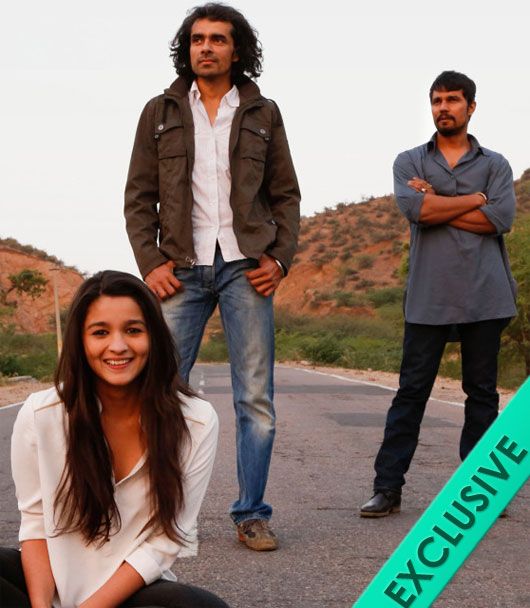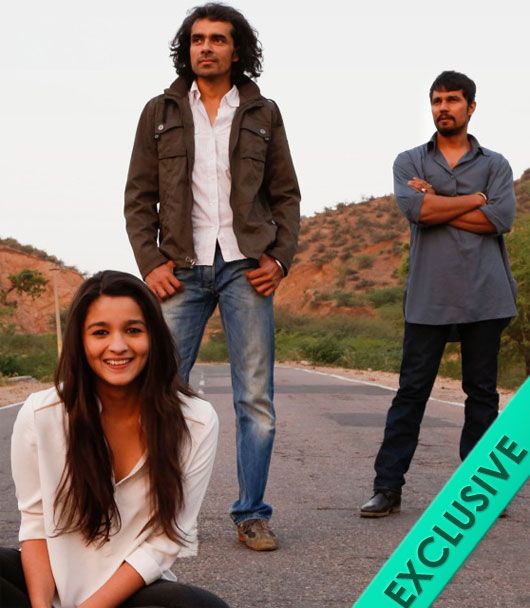
Imtiaz Ali is, beyond a doubt, one of my favourite filmmakers in the industry today. I don’t know what it is about his films – maybe the fact that his dialogue feels ‘normal’ and not scripted, maybe because he seems to understand his characters on an intrinsic level, maybe because he knows how to blend just the right amount of escapism with reality. In any case, when Dhruvi and I got the opportunity to interview him for Highway, you better believe we jumped at it. 20 minutes of delving into Imtiaz’s mind? Nothing sounds better. We ended up coming away with one of the best interviews we’ve ever done – and we hope you enjoy the inner workings of Imtiaz Ali’s brain the way we did!
Team MissMalini (Team MM): You intended to make Highway 15 years ago. Are you happy that you’ve made it now? Do you think your experiences over the years have helped shape the story?
Imtiaz Ali (IA): I don’t think I was ready as a director to make Highway before this. I’ve tired to make Highway and construct it in different ways – in more dramatic ways, less dramatic ways, more romantic ways, more obviously glamorous ways, etc. And finally I think it just stayed in its pure, unadulterated form. It’s neat now.
Team MM: You said that ‘something’ about Highway never left you. What do you think that thing was?
IA: It’s something very distinct being said in the film. The soul of the film… [pauses] It cannot be expressed in words, which is why we’ve made a film. But there was something that this girl, in this journey, was experiencing. I just couldn’t get that out. Sometimes it’s so fascinating that you have to be away from society to see it properly.
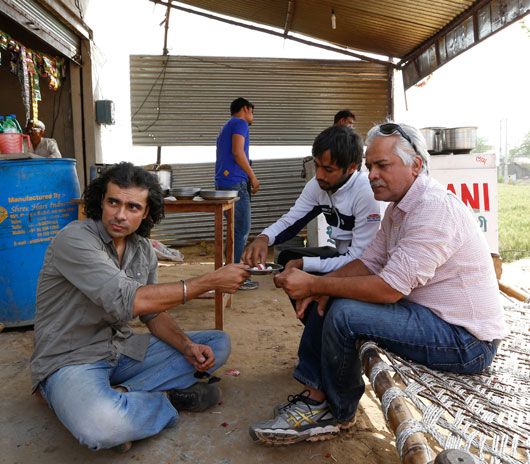
Team MM: What was it like revisiting such an old story and pulling out those old scripts?
IA: I did not pull out any scripts. Even though I had written different scripts at different times for Highway, I didn’t pull anything out. I just wrote afresh. You don’t go back to it, I feel. I never do that. I just say, ‘what is it for me now?’ The story will change. When you make it is when you have to decide. There’s something subconscious which tells you that a film cannot be made, that’s why it didn’t get made. This was the time for Highway to be made.
At this point, Imtiaz showed us a sketch his friend made. On the right is civilisation, and on the left is a bird flying in an “unmarked territory” – and when the bird is away from the city, then it will be able to see it in a different way. According to Imtiaz, “Highway is like that.”
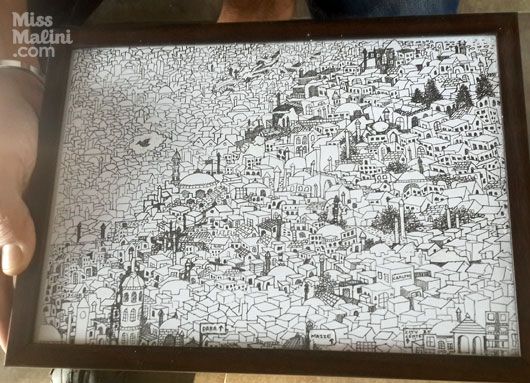
Team MM: Your films mostly have some element of a journey in it. What’s constant in those journeys?
IA: What’s constant is the fact that you discover yourself. Oftentimes, when I’m in a zone that I know, then I feel like I have a role. I already have expectations; I’ve been programmed in a certain way. So I will behave in that certain way. You don’t realise it, but you also start playing the role of what you are expected to be in a certain situation. When you’re in a new situation, where people don’t know you, where you don’t know the terrain, you’re free of that. There is no imposition of any training, or any roleplaying. You can be anybody. And that’s very relieving. When I used to travel earlier, they used to ask me, ‘So what do you do?’ And I used to say… ‘I’m a spy.’ Or that ‘I actually can’t tell you who I am.’ Things like that, just for the heck of it. And then the whole day, I used to be thinking that actually I am a spy. A secret service agent. [laughs] And everyone used to think that, oh f**k, he’s a secret service agent! It’s boring to be the same person through your life. I can’t stand it.
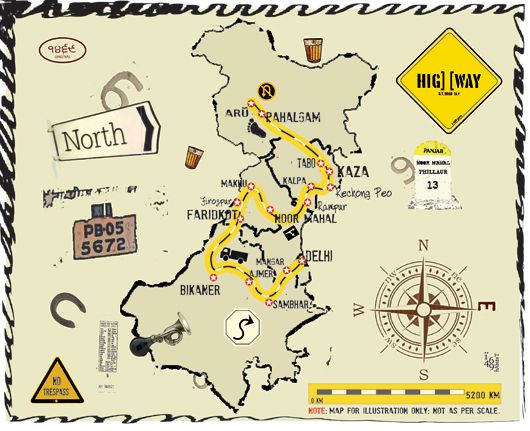
Team MM: You’ve said before that you left the script of Highway open. But how does that work? How open is open?
IA: See, I’m used to shooting films where the script is fully done. And then I do changes and improvisations etc, but the script is fully done. There the location becomes a mere backdrop. I’m not taking much more than that from it. But in the scope of this film, I felt that I had to be much more flexible. I could afford to be flexible in Highway because I knew the story very well. I knew what this particular scene is trying to say. Then, if I know nothing else, I’m still fine. So then, I go to a particular location and see what the conditions are and see what I’m feeling. If I use all those elements and come up with a freshly made omelette served hot to the actors, then it becomes more organic. Then there’s a reason why I’ve gone to Himachal. There’s a reason for this whole journey and why I didn’t sit in this office and have the same scenes played out to the same effect. I was trying for the script to be just slightly ahead of the journey. Here, the script has been finalised more or less after the shooting… because oftentimes I’ve just discussed with my actors, ‘okay, let’s do this’.
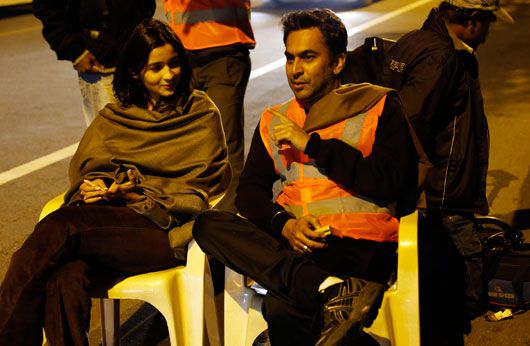
Team MM: So do you prefer this way of working?
IA: I think that I should be, as a director, open to making any movie the way that it should be made. For instance, Jab We Met could not have been made like that – you needed more structure there. But today, perhaps, Jab We Met could have been made like this. You know, cinema has also changed, and it allows me more flexibility. I should be able to make a movie the way it demands to be made. This movie demanded to be made this way. The next one may not be.
Team MM: Speaking of Jab We Met, we read in an old interview of yours that you’d give the film a complete overhaul if you could. That breaks our hearts, but we have to ask: why would you say that? What would you change, or what went wrong?
IA: I think everything goes wrong in every movie for me – and maybe other directors – after it’s released. There is no movie of mine I see and I like. There’s no scene of mine that I see and I feel there’s nothing wrong in it. So Jab We Met… there are lots of locations which could have been better. There are lots of details of aesthetics that could have been better. There is some casting that could have been better. There’s a lot of dialogue, performance that could have been better.
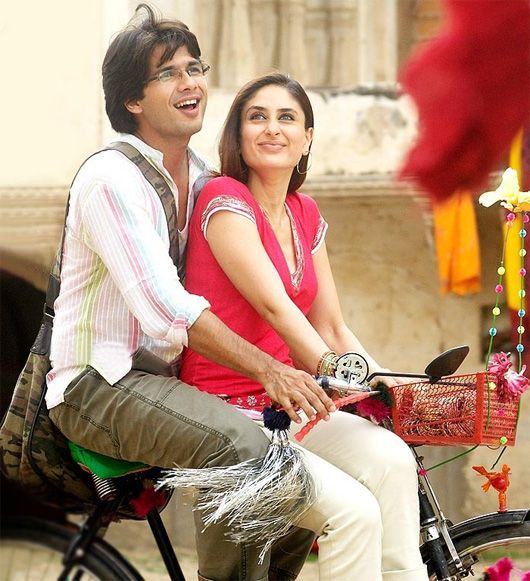
Team MM: Coming back to Highway, Randeep and Alia make for a very unconventional pairing. What made you decide to cast them?
IA: I would like to believe that I’m honest to my work. If there’s a story, and there are characters in that story, I try to just cast it honestly to the merit of the character and the actor. In this case, Randeep and Alia were both the ideal choices. I do understand the whole thing of ‘you could’ve had a bigger star’, but the point is that I’m not a shopkeeper. I’m a filmmaker. My work requires me to be honest in my casting, and not put the largest diamond in this earring. It won’t go. I understand stardom, and box office opening and collection etc. But I don’t think by having a big star who’s not suitable for this film you’ll have a bigger box office opening. Something like stardom is very temporary, but film is permanent. You should never damage the film because of these trends. You should make the film in a pure manner, because that is what will survive. And it’ll be there forever to embarrass you!
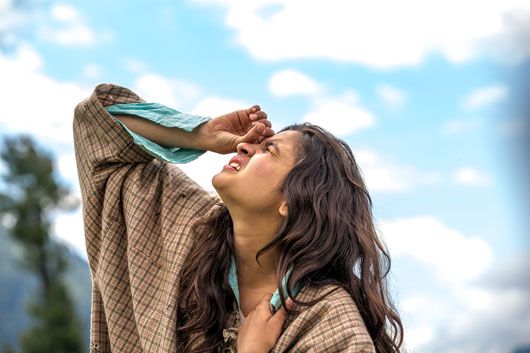
Team MM: Love is a common theme in all your stories, whether the fun love stories like Jab We Met, or the unrequited love of Aahista Aahista, or the painful love of Rockstar… are you drawn to love as a subject? Is it something you consciously gravitate towards or is it just something that keeps happening?
IA: It keeps happening. I don’t gravitate towards it. I don’t think while making a movie that it’ll be a love story. It’s perhaps my incomprehension of the term love that keeps me drawing towards stories that are then later categorised as love stories.
Team MM: In your movies, separation tends to bring your characters back together. Have you observed that as well? Do you think that’s important?
IA: When I was making Love Aaj Kal, I was very fascinated by this elastic phenomenon. Which really means that if you pull the elastic, it pulls back. But if you don’t, there’s no pull. If you look at Love Aaj Kal, I think that’s the primary concern of it: that when you’re close together, you’re actually very aloof and apart. But when we’re far away, then I’m just obsessed with you. I do think that happens, and I’m not the first person who thinks so – you’ve heard “distance makes the heart grow fonder.” But even that has a shelf life – beyond that, it doesn’t survive. Distance is not good enough to keep people together. And distances can even be created when you’re together – like you’re there, but not there. Don’t rely on distance to be the cure of your ailments in relationships.
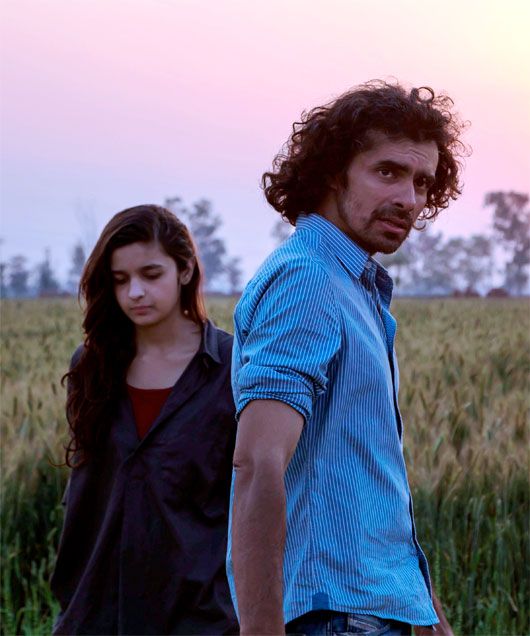
Team MM: We know you’re concentrating on Highway, but we have to ask about Window Seat. What kind of space is that film in? When we think of ‘window seat’, we think of daydreaming, reminiscing, being alone with your thoughts…
IA: Exactly. It’s not so much about daydreaming; it’s more about looking out and… yeah, world of your imagination. It’s about all that. It’s about stories, and story telling, and how you realise you’re part of the story of your life.
Team MM: And finally, we asked on Twitter for questions, and this was the number one question: When will you work with Shahid Kapoor again?
IA: Really, is that the number one Twitter question? I’m very impressed. When will I work with Shahid Kapoor again? I hope soon I have a story to work with him again. I’d be happy to work with him. Actually, I’d be happy to see where he is at as an actor or in his life. We’ve worked together a long time ago, I’m sure that he’s discovered new things and had new journeys after that. It’d be fun.

